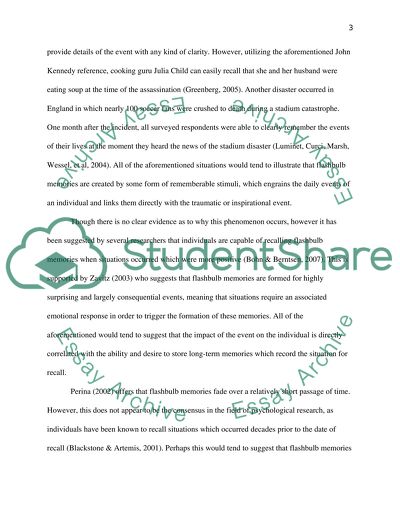Cite this document
(“Flashbulb memory Essay Example | Topics and Well Written Essays - 1000 words”, n.d.)
Retrieved from https://studentshare.org/miscellaneous/1544521-flashbulb-memory
Retrieved from https://studentshare.org/miscellaneous/1544521-flashbulb-memory
(Flashbulb Memory Essay Example | Topics and Well Written Essays - 1000 Words)
https://studentshare.org/miscellaneous/1544521-flashbulb-memory.
https://studentshare.org/miscellaneous/1544521-flashbulb-memory.
“Flashbulb Memory Essay Example | Topics and Well Written Essays - 1000 Words”, n.d. https://studentshare.org/miscellaneous/1544521-flashbulb-memory.


